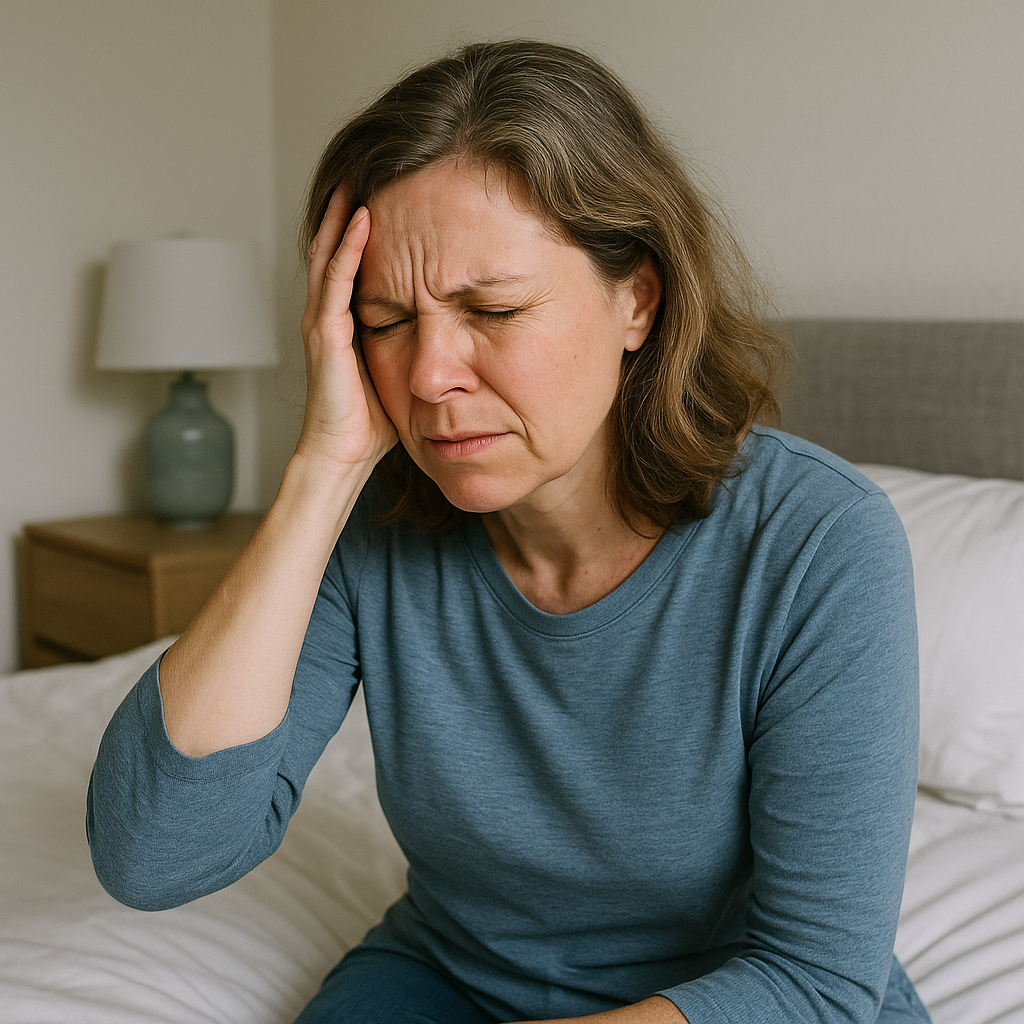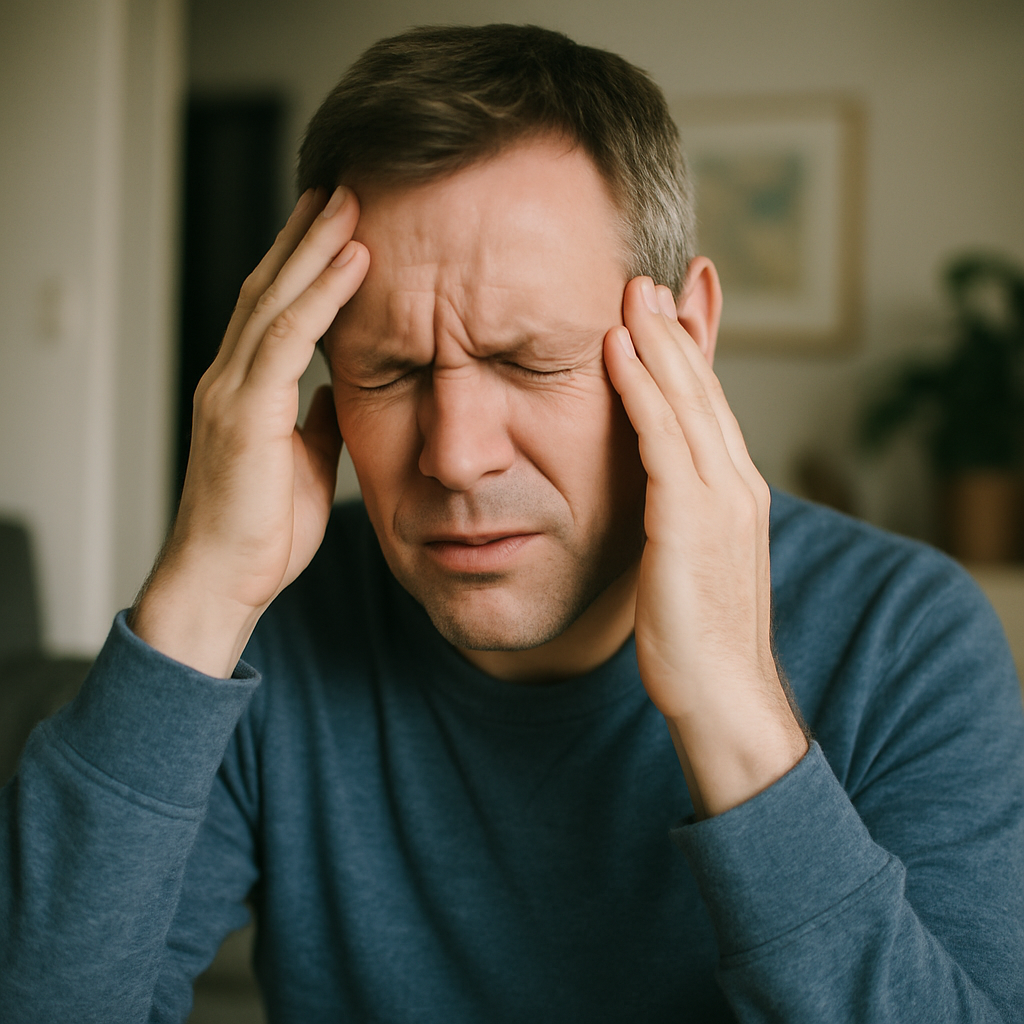How Long Does Vertigo Typically Last and What You Can Do About It

Vertigo. That off-balance, spinning, unsettling feeling that can throw your entire day—or week—off track. If you've ever found yourself gripping the wall or lying flat just to stop the room from swirling, you're not alone. And like most people dealing with this disorienting condition, you’ve probably Googled in frustration: how long does vertigo last? or how to cure vertigo permanently.
The truth is, vertigo is not a one-size-fits-all experience. For some, it lasts minutes. For others, days or even longer. Whether it's a sudden bout of benign paroxysmal positional vertigo (BPPV) or something more chronic, the key to managing it lies in understanding the root causes—and your options.
This article will walk you through everything from what causes vertigo to how long does vertigo usually last, including natural and Ayurvedic approaches that just might surprise you.
What Is Vertigo and Why It Happens
Vertigo isn’t a disease. It’s a symptom. A sign that something in your body’s balance system—mostly the inner ear or brain—isn’t quite syncing up the way it should. It feels like motion when there isn’t any. Like your head’s in a slow spin, or the ground is swaying under your feet, even if you’re standing still.
Sometimes it’s subtle, like a lightheaded moment. Other times, it’s the full-on dizziness you can’t ignore. And it's more common than you think. Millions of people experience it each year, and many struggle with figuring out how long does vertigo normally last without knowing where to begin.
What Causes Vertigo: An Overview
So, what causes vertigo, exactly? The culprits are many. It can stem from inner ear disturbances, like inflammation or infection. Migraines are another common trigger. There’s also Meniere’s disease, which affects inner ear fluid levels, causing pressure and spinning.
Then there’s the one that shows up in so many searches: benign paroxysmal positional vertigo—or BPPV vertigo. It's a mouthful, but it’s actually the most common cause.
Benign Paroxysmal Positional Vertigo (BPPV) Explained
BPPV happens when tiny calcium particles in your inner ear canals get dislodged. When you move your head—like rolling over in bed—these particles shift and send confusing signals to your brain. The result? A brief but intense spinning sensation.
And here's the kicker: BPPV can come and go without warning. You might feel fine one day and suddenly be hit with a vertigo attack the next. Which brings us to the burning question…

How Long Does a Vertigo Attack Last?
That depends. Some vertigo attacks last just a few seconds—especially in the case of BPPV. Others can stretch on for hours. A few unlucky folks even report symptoms that stick around for days. If you’ve ever thought, how long does vertigo last without treatment?—you’re not alone.
But there's no straight answer. How long does a vertigo attack last may depend on its root cause, your health, and even your stress levels. For instance, how long does cervical vertigo last may differ significantly from BPPV-related episodes.
Short answer? Anywhere from seconds to several weeks.
What to Expect with Recurrent Episodes
Recurring vertigo can be incredibly frustrating. One week you’re good. The next, the room is spinning again. While how long does vertigo typically last can vary, frequent episodes are a sign it’s time to look deeper. Sometimes, lifestyle changes or physical therapy can reduce or eliminate recurrence. Other times, medical intervention—or alternative methods—may be needed.

When to Seek Help for Vertigo
Feeling dizzy now and then? Sure, that happens. But when vertigo keeps showing up uninvited—or sticks around longer than you’d expect—it might be a sign of something more serious.
So, how long does vertigo last before you should get it checked out? While some episodes resolve on their own in a few minutes, others can linger for days. If your vertigo lasts more than a week, or worsens over time, don’t just chalk it up to stress or sleep deprivation. Trust your gut. Something’s not right.
Signs It’s More Than a Temporary Imbalance
You should definitely see a doctor if:
-
The spinning sensation doesn’t improve or fades and then keeps coming back,
-
You have trouble walking, speaking, or seeing clearly during episodes,
-
Nausea or vomiting become constant,
-
There’s ringing in your ears or hearing loss.
These could point to more serious neurological conditions or problems in the vestibular system. Even though benign paroxysmal positional vertigo is, well, benign, not all vertigo is.
If you’re still wondering, how long does vertigo usually last or how long does vertigo normally last and can’t find a straight answer—it's because the duration varies widely depending on the cause. But persistent symptoms? Always worth a closer look.

Ayurvedic Approach to Vertigo and Dizziness
Western medicine tends to focus on symptom management. That’s great for relief, but if you’re someone who’s asking how to cure vertigo permanently, it might be time to consider alternative perspectives. Ayurveda, the ancient healing science of India, takes a deeper and more holistic look at why your world might be spinning.
Vata and Pitta Imbalances Behind Spinning Sensations
In Ayurvedic terms, vertigo is usually linked to imbalances in the Vata and Pitta doshas. Vata governs movement and the nervous system; when it’s out of balance, the mind and body can become unsteady—literally. Pitta, responsible for metabolism and heat, when aggravated, can overheat the head and contribute to inflammation or dizziness.
According to this framework, what causes vertigo isn’t just physical—it’s energetic too. Stress, poor sleep, excess screen time, and irregular meals can all contribute to doshic imbalance and vertigo symptoms.
Herbs and Therapies for Balancing the Nervous System
Ayurveda recommends calming, grounding herbs such as:
-
Brahmi (Gotu Kola) – Supports cognitive function and nervous system balance.
-
Ashwagandha – Helps reduce stress and anxiety, two major vertigo triggers.
-
Guduchi – A detoxifying herb often used for balancing Pitta.
These can be taken in tea, tincture, or capsule form. But remember: always talk to a professional before mixing herbal treatments with prescription meds. Just because it’s natural doesn’t mean it’s harmless.
Also, certain therapies like Shirodhara (warm oil poured on the forehead) and Nasya (nasal oil application) are traditionally used to stabilize the senses.
Lifestyle, Diet, and Breathing Practices for Stability
Your daily routine plays a massive role in how your body maintains equilibrium. Try:
-
Eating warm, cooked meals at the same time each day,
-
Avoiding stimulants like caffeine and alcohol,
-
Practicing gentle yoga and breathing techniques like alternate nostril breathing.
These support your nervous system and help reduce those unpredictable vertigo attacks. The goal here isn’t just symptom relief—it’s nervous system resilience.
If you’ve been wondering how long does vertigo last without treatment, Ayurveda suggests it might linger indefinitely if the root cause isn’t addressed. But with consistent self-care and balance? Relief is possible.
Conclusion
Vertigo isn’t just an inconvenience—it can be downright terrifying when it hits out of nowhere. And the first thing most people ask is, how long does vertigo last? Unfortunately, there's no universal answer. A quick spin that lasts seconds might not seem serious, but for others, a single attack can stretch into days or even weeks of instability.
Whether it’s caused by benign paroxysmal positional vertigo (BPPV), cervical issues, or something deeper like nervous system imbalance, understanding the causes of vertigo is the first step to managing it. And if you're looking for how to cure vertigo permanently, it’s going to take a combination of awareness, the right diagnosis, and potentially a blend of Western and holistic healing strategies.
Don’t ignore recurring symptoms. Don’t write off that weird spin when you tilt your head. And don’t assume it’ll just go away forever without effort. The more you listen to your body and care for your nervous system—whether through Ayurvedic herbs, stress management, or physical therapy—the better chance you have at breaking free from the dizzy cycle.
And hey, if this helped even a little, maybe share it with someone who’s feeling lost in the spin. They might thank you for it.
FAQs
Can cervical vertigo last for weeks?
Yes, unfortunately, it can. Cervical vertigo—linked to issues in the neck like misalignment, disc problems, or muscle tension—can cause dizziness that drags on for days or even weeks. What makes it tricky is that the symptoms often come and go, which makes it hard to diagnose. If you’ve had a neck injury or poor posture from long computer hours (hey, who hasn’t?), and you’re also experiencing dizziness, this could be the connection.
Chiropractic care, physiotherapy, and posture correction exercises can help reduce or even resolve the issue, though it might take time. In other words, it’s not usually a “quick fix.”
What’s the difference between BPPV and other types of vertigo?
Great question—and one that confuses a lot of people. BPPV vertigo is caused by little calcium crystals moving into the wrong part of your inner ear. It usually results in short, intense episodes triggered by movement (like turning your head or rolling over).
Other types of vertigo, such as from vestibular neuritis or Meniere’s disease, may last longer and come with other symptoms like hearing loss or tinnitus. BPPV doesn’t affect hearing, which is one way to tell it apart.
So if your vertigo is triggered by head position and doesn’t include ear symptoms, chances are, it’s BPPV.
What are the best natural remedies for vertigo?
Some of the best natural remedies include:
-
Ginger tea – Known for reducing nausea and helping with circulation.
-
Hydration – Even mild dehydration can trigger dizziness.
-
Yoga and breathing – Grounding poses and calming breathwork help settle your nervous system.
-
Ayurvedic herbs – As mentioned earlier: Brahmi, Ashwagandha, and Guduchi can be powerful allies when used properly.
Also, don't forget rest. When your body is off-balance, it’s usually a sign that it needs downtime—not another coffee or more screen time.
Got any more questions?
Ask Ayurvedic doctor a question and get a consultation online on the problem of your concern in a free or paid mode.
More than 2,000 experienced doctors work and wait for your questions on our site and help users to solve their health problems every day.

